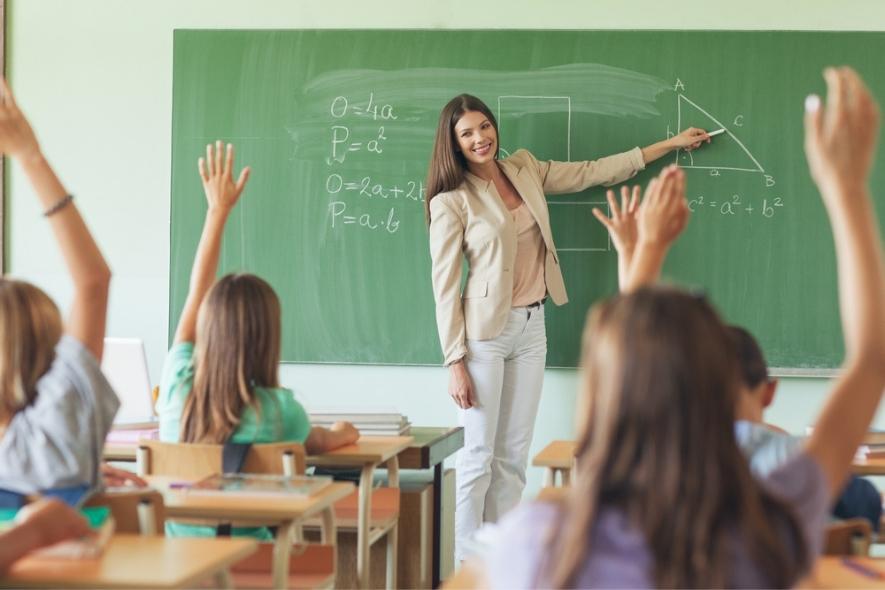Comprehensive Primary Science Tuition Singapore for Primary School Students
Comprehensive Primary Science Tuition Singapore for Primary School Students
Blog Article
Checking Out the Different Teaching Approaches in Primary Science Education Today
Inquiry-based knowing, hands-on experiments, and the combination of innovation are redefining how educators engage young minds. In addition, joint approaches and distinguished instruction are being used to provide to the varied demands of pupils, boosting both involvement and understanding.
Inquiry-Based Discovering
Inquiry-Based Knowing (IBL) is an instructional approach that urges students to check out clinical ideas via questioning, examination, and hands-on trial and error. This method stresses the duty of students as active participants in their discovering, advertising vital reasoning and analytic skills. By engaging with real-world concerns, trainees end up being determined and interested, which improves their understanding of scientific principles.
In IBL, educators serve as facilitators, leading students as they navigate their questions as opposed to providing details directly. This student-centered method enables differentiation, fitting various discovering paces and styles. Students develop skills in creating hypotheses, making experiments, and analyzing data, which are crucial for scientific literacy.
Additionally, IBL fosters collaboration amongst students, motivating them to share concepts and searchings for. This cumulative query advertises social abilities and a feeling of neighborhood within the classroom. Moreover, the process of query encourages resilience, as students find out to embrace failing as a tipping rock towards understanding.
Hands-On Experiments
Hands-on experiments are an important component of reliable science education and learning, matching the concepts of inquiry-based learning. These experiments allow trainees to involve straight with clinical concepts, fostering a much deeper understanding with experiential knowing. By manipulating products and observing results, young learners can understand abstract theories in substantial methods.
Such activities advertise essential reasoning and analytical skills, as trainees hypothesize outcomes, conduct experiments, and analyze results. This process urges them to ask concerns, refine their understanding, and establish a clinical way of thinking. Moreover, hands-on experiments can be customized to diverse discovering designs, guaranteeing that all pupils have the chance to engage meaningfully with the web content.
Moreover, hands-on experiments typically urge cooperation amongst peers, promoting team effort and interaction abilities. Functioning in groups allows trainees to share concepts, discuss findings, and pick up from one an additional, which boosts their general instructional experience.
Integrating hands-on experiments into the main scientific research curriculum not just enriches the finding out setting yet likewise cultivates a lifelong passion in scientific research. By proactively joining their education, pupils are most likely to establish an interest for scientific inquiry that expands beyond the class.

Modern Technology Integration
Incorporating modern technology into main scientific research education and learning has actually ended up being significantly crucial in fostering pupil involvement and boosting finding out results. The usage of digital tools, such as interactive simulations, virtual laboratories, and instructional software, gives pupils with possibilities to check out scientific ideas in innovative methods. These resources promote a deeper understanding of complex topics by enabling students to picture and manipulate variables that would be not practical in a typical class setup.
Moreover, technology integration encourages customized learning experiences. Students can advance at their very own rate, taking another look at challenging principles with multimedia sources, which satisfy various discovering styles. This flexibility not just sustains specific growth but likewise cultivates a feeling of freedom in learners.
Furthermore, modern technology acts as a bridge to real-world scientific research, attaching students with current study and expert payments. Accessibility to on-line data sources and scientific journals widens pupils' point of views on clinical query and promotes crucial assuming abilities.
Collaborative Learning
Collaborative learning plays a vital function in main scientific research education by promoting team effort and interaction skills among trainees. This strategy encourages learners to function together, share understanding, and take part in analytic, which enhances their understanding of clinical ideas. By getting involved in team tasks, trainees discover to verbalize their ideas, pay attention to varied perspectives, and bargain remedies, every one of which are crucial abilities in both academic and real-world contexts.

Study suggests that collaborative understanding can cause boosted motivation and engagement in science topics, as students locate enjoyment in shared experiences (primary science tuition Singapore). In addition, this method prepares pupils for future collaborative ventures, furnishing them with the abilities required for reliable team effort in college and specialist environments. Ultimately, accepting joint knowing in primary scientific research education can considerably enhance the learning experience and advertise a deeper understanding of clinical questions
Separated Direction

Separated instruction can manifest in different ways, such as varying the material, processes, or items of learning. For example, instructors might use tiered projects that supply differing degrees of complexity, allowing pupils to work at their corresponding readiness degrees. Additionally, flexible organizing approaches can promote cooperation description amongst pupils with different abilities, cultivating peer understanding.
Analysis plays a critical duty in this strategy, as it educates direction and helps instructors comprehend each student's unique needs. Formative analyses, such as quizzes and monitorings, can direct educators in adjusting their approaches to enhance learning results. primary science tuition Singapore. Ultimately, by carrying out distinguished guideline in primary scientific research education and learning, teachers can grow a more reliable and equitable discovering setting, empowering all trainees to reach their complete potential in comprehending clinical sensations
Conclusion
In summary, the varied training approaches in main scientific research education, including inquiry-based understanding, hands-on experiments, technology combination, collective understanding, and distinguished direction, jointly add to an extra effective discovering setting. These methods promote important thinking, analytical skills, and a deeper comprehension of clinical concepts. By executing these strategies, educators can create appealing and helpful classrooms that deal with the diverse needs of students, eventually promoting a lifelong passion in scientific research and enhancing academic accomplishment.
Inquiry-Based Learning (IBL) is a pedagogical strategy that encourages pupils to discover scientific ideas via questioning, investigation, and hands-on testing.Collective learning plays an essential role in key science education by promoting synergy and interaction skills among students.Research study suggests that collaborative understanding can lead to increased inspiration and involvement in science subjects, as pupils find satisfaction in common experiences.In fostering a comprehensive discovering environment, set apart direction emerges as a crucial technique to suit the varied requirements and abilities of pupils in main science education and learning. Eventually, by executing distinguished instruction in key science education and learning, teachers can cultivate a more effective and fair discovering environment, encouraging all trainees to reach their complete potential Website in recognizing scientific sensations.
Report this page